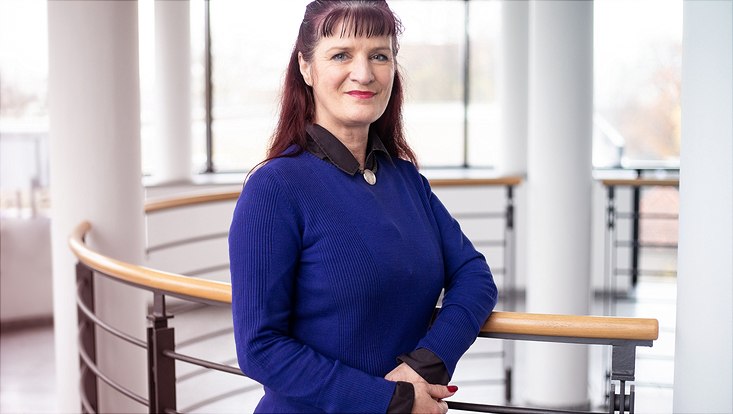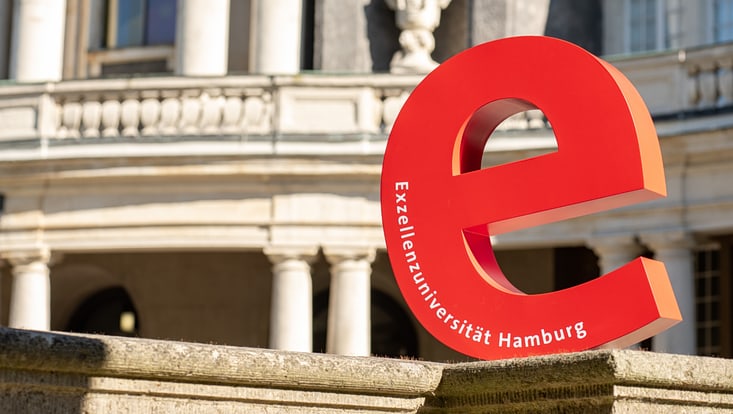Professor of scientific and innovation research appointed“I dream of comprehensive cultural change.”
23 November 2020, by Christina Krätzig

Photo: UHH/Lutsch
The sociologist Prof. Dr. Sabine Maasen is switching to Universität Hamburg for a professorship newly created within the context of the Excellence Strategy of the Federal and State Governments. She will serve as the academic director of the Transfer Agency that is currently being set up.
Most recently, Sabine Maasen—newly appointed to Universität Hamburg—held the Friedrich Schiedel Endowed Chair in the Sociology of Science at the Technical University of Munich. She is a member of the German Science Council, one of Germany’s most important councils for scientific policy. In Hamburg, she will not only teach and research; she will also actively shape knowledge transfer between the University and society, the general public, policy makers, and industry as part of the Transfer Agency.
Ms. Maasen, robots in health and nursing care, sustainability, or the question as to why more and more people seek psychotherapy: at first glance, your research interests seem very wide-ranging. What is the common theme of all of your interests?
I want to understand how science affects individuals and society as a whole. I look at individual changes and the constant change in which our society finds itself—and the question as to how this change affects science and scholarship. On the one hand, it requires science and scholarship to change. On the other hand, scientific findings inspire changes in society. The entanglements are manifold.
You were appointed to a professorship for scientific and innovation research at Universität Hamburg. Moreover, you will be the scientific director of the Transfer Agency currently being set up. What was your motivation for accepting both positions?
I see it as a great opportunity to help shape the Transfer Agency and the academic culture at the University. I dream of nothing less than comprehensive cultural change, both at Universität Hamburg and in the entire country. In my view, transfer is a central requirement for researchers. I do not want researchers to see this as an additional burden but as an integral part of their work—and ideally as something that they can consider from the very outset of their projects.
Will you focus here in Hamburg more on organizational than on academic matters?
Developing institutions that facilitate cooperation between academics in very different subjects has long been one of my focal points and topics of interest. This is because, in my experience, interdisciplinarity works only in a clear, suitable context. Developing and shaping these conditions for the Transfer Agency will undoubtedly take up a majority of my time in the coming year. Long-term, however, I certainly plan to make the work of the Transfer Agency itself a subject for self-reflective research.
What are you most looking forward to at Universität Hamburg?
I am excited about working at a comprehensive university again after my tenure at a technical university. I hope to find an even wider range of topics, encounters, and possible interrelations here.
Professorship for innovation research
Universität Hamburg established the new professorship for innovation research to provide insight into and shape the innovation processes taking place between society and academia. The professorship involves an element of collaboration with network partners in the Hamburg Metropolitan Region and integration into national and international research and knowledge transfer associations. In the medium term, it will also underpin the establishment of a master’s degree program in innovation, cooperation, and transfer.


